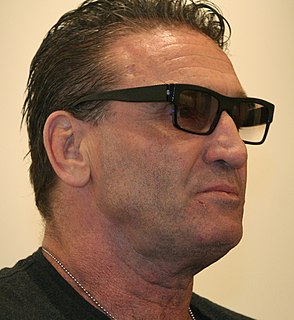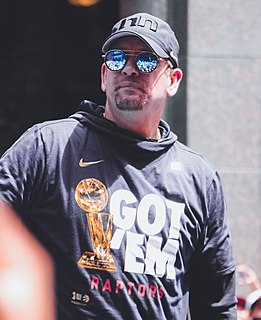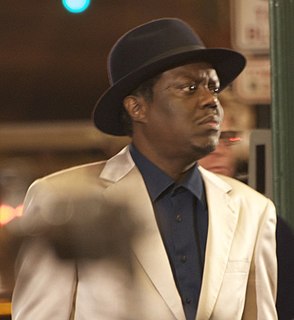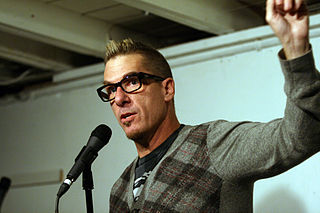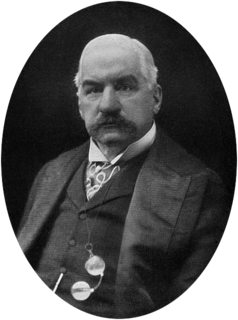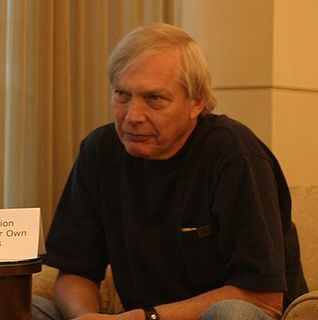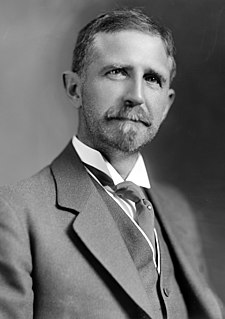A Quote by Daniel Gilbert
Research suggests that people are typically unaware of the reasons why they are doing what they are doing, but when asked for a reason, they readily supply one.
Related Quotes
Frank Capra made a series of films during World War II called 'Why We Fight' that explored America's reasons for entering the war. Today, with our troops engaged in Iraq and elsewhere for reasons far less clear, I think it's crucial to ask the questions: 'Why are we doing what we are doing? What is it doing to others? And what is it doing to us?'
All you do as a performer is keep doing it. If you keep doing it, then it depends on why you're doing it. If you're doing something for superficial, monumental reasons and if you're doing it for female attention, or if you're doing it for money, it's like being upset. Only way you can get upset is when you expecting something. If you don't get this award or don't get that award, that because you expect something.
Most authors writing books like 'He's Just Not That Into You' dream of doing what I was being asked to do. I didn't like it. I'm good at giving advice, but doing it on TV and radio felt wrong, and when people resisted my point of view, I was like, 'Why am I doing this? This was not the plan.' So I stopped. It didn't make me feel good.
I try to discover the character's primary motivation. In a screenplay, you can make up a hundred different variables of a character. Is he there for love or respect, or is he there out of fear? What's he doing? Why is he doing it? Then I can build on the intricacies. Does he pick his fingernails? Does he always do this when he's lying? All the little things that come with it. But it's also like, if you're doing a caricature and you're like, "I want to do a blue-collar guy from Jersey," you have to go and do the research on the region, the who, what and why.
The notion of a writer sitting in a library doing research isn't what I want. The research I love doing isn't found in a book. It's what it feels like to rappel down the side of a building; to train with a SWAT team; to hold a human brain in your hands; or to dive for pirate treasure. Those are things I've done to research my stories.
According to Adams, Jefferson proposed that he, Adams, do the writing [pf the Declaration of Independence], but that he declined, telling Jefferson he must do it. Why?" Jefferson asked, as Adams would recount. Reasons enough," Adams said. What can be your reasons?" Reason first: you are a Virginian and a Virginian ought to appear at the head of this business. Reason second: I am obnoxious, suspected and unpopular. You are very much otherwise. Reason third: You can write ten times better than I can.
Experience has taught me that there is one chief reason why some people succeed and others fail. The difference is not one of knowing, but of doing. The successful man is not so superior in ability as in action. So far as success can be reduced to a formula, it consists of this: doing what you know you should do.


